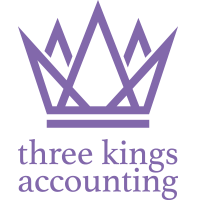Due to the ever changing tax legislation and commercial factors affecting your company, it is advisable to carry out an annual review of your company’s tax position.
Pre-year end tax planning is important as the current year’s results can normally be predicted with some accuracy and time still exists to carry out any appropriate action.
We outline below some of the areas where advance planning may produce tax savings.
For further advice please do not hesitate to contact us.
Corporation tax
Advancing expenditure
Expenditure incurred before the company’s accounts year end may reduce the current year’s tax liability.
In situations where expenditure is planned for early in the next accounting year, the decision to bring forward this expenditure by just a few weeks can advance the related tax relief by a full 12 months.
Examples of the type of expenditure to consider bringing forward include:
- building repairs and redecorating
- advertising and marketing campaigns
- redundancy and closure costs.
Note that payments into company pension schemes are only allowable for tax purposes when the payments are actually made as opposed to when they are charged in the company’s accounts.
Capital allowances
Consideration should also be given to the timing of capital expenditure on which capital allowances are available to obtain the optimum reliefs.
Single companies irrespective of size are able to claim an Annual Investment Allowance (AIA) which provides 100% relief on expenditure on plant and machinery (excluding cars). The maximum amount of the AIA depends on the date of the accounting period and the date of expenditure. The AIA from 1 January 2019 is £1 million. It will revert to £200,000 from 1 April 2023. Companies with accounting periods which straddle 1 April 2023 will be entitled to calculate a hybrid allowance using the two rates. Complex rules may apply to the straddle period AIA calculation.
Where purchases exceed the AIA, a writing down allowance (WDA) is due on any excess in the same period.
Groups of companies have to share the allowance. Expenditure on qualifying plant and machinery in excess of the AIA is eligible for writing down allowance (WDA) of 18%. Where the capital expenditure is incurred on integral features the WDA is 6%.
Limited allowances are also available for investments in certain types of building.
Super-Deduction
Between 1 April 2021 and 31 March 2023, companies investing in qualifying new plant and machinery will benefit from new first year capital allowances.
Under this measure a company is allowed to claim:
- a super-deduction providing allowances of 130% on most new plant and machinery investments that ordinarily qualify for 18% main rate writing down allowances
- a first year allowance of 50% on most new plant and machinery investments that ordinarily qualify for 6% special rate writing down allowances.
This relief is not available for unincorporated businesses.
Trading losses
Companies incurring trading losses generally have three main options to consider in utilising these losses:
- they can be set against any other income (for example bank interest) or capital gains arising in the current year
- they can be carried back for up to one year and set against total profits (but see below for details of the extension)
- they can be carried forward and set against profits arising from different types of income in future years.
There is a restriction on the use of carry forward losses where a company’s or group’s losses are in excess of £5 million. Profits cannot be reduced by more than 50% by brought forward losses. Losses that have arisen at any time are subject to these restrictions.
Tax losses extension
A temporary extension of the period over which businesses may carry trading losses back for relief against profits of earlier years to get a repayment of tax paid has effect for company accounting periods ending in the period 1 April 2020 to 31 March 2022.
Trade loss carry back is extended from the current one year entitlement to a period of three years, with losses being carried back against later years first.
For companies, after carry back to the preceding year, a maximum of £2 million of unused losses is available for carry back against profits of the same trade to the earlier two years. This £2 million limit applies separately to the unused losses of each 12 month period within the duration of the extension.
Extracting profits
Directors/shareholders of family companies may wish to consider extracting profits in the form of dividends rather than as increased salaries or bonus payments.
This can lead to substantial savings in national insurance contributions (NICs).
Note however that company profits extracted as a dividend remain chargeable to corporation tax at a minimum of 19%.
Dividends
From the company’s point of view, timing of payment is not critical, but from the individual shareholder’s perspective, timing can be an important issue. A dividend payment in excess of the Dividend Allowance which is delayed until after the tax year ending on 5 April may give the shareholder an extra year to pay any further tax due. The Dividend Allowance is £2,000 for 2022/23.
The deferral of tax liabilities on the shareholder will be dependent on a number of factors. Please contact us for detailed advice.
Loans to directors and shareholders
If a ‘close’ company (broadly, one controlled by its directors or by five or fewer shareholders) makes a loan to a shareholder, this can give rise to a tax liability for the company.
If the loan is not settled within nine months of the end of the accounting period, the company is required to make a payment equal to 33.75% of the loan to HMRC for loans made on or after 1 April 2022 (previously 32.5%). The money is not repaid to the company until nine months after the end of the accounting period in which the loan is repaid by the shareholder.
A loan to a director may also give rise to a tax liability for the director on the benefit of a loan provided at less than the market rate of interest.
Rates of tax
The main rate of corporation tax is currently 19% and it will remain at that rate until 1 April 2023 when the rate will increase to 25% for companies with profits over £250,000. The 19% rate will become a small profits rate payable by companies with profits of £50,000 or less. Companies with profits between £50,001 and £250,000 will pay tax at the main rate reduced by a marginal relief, providing a gradual increase in the effective corporation tax rate.
Self assessment
Under the self assessment regime most companies must pay their tax liabilities nine months and one day after the year end.
Companies which have profits in excess of £1.5m may have to pay tax under the quarterly accounting system. If you require any further information on the quarterly accounting system, we have a factsheet which summarises the system.
Corporation tax returns must be submitted within twelve months of the year end and are required to be submitted electronically. In cases of delay or inaccuracies, interest and penalties will be charged.
Capital gains
Companies are chargeable to corporation tax on their capital gains less allowable capital losses. The rules that potentially limit the use of brought forward trading losses have been extended to include brought forward capital losses. The changes have effect where carried forward capital losses are used to offset chargeable gains accruing from 1 April 2020.
Planning of disposals
Consideration should be given to the timing of any chargeable disposals to minimise the tax liability. This could be achieved (depending on the circumstances) by accelerating or delaying sales and the availability of losses or the feasibility of rollover relief (see below) should also be considered.
Purchase of new assets
It may be possible to avoid a capital gain being charged to tax if the sale proceeds are reinvested in a replacement asset.
The replacement asset must be acquired in the four year period beginning one year before the disposal, and only certain trading tangible assets qualify for relief.
How we can help
Tax savings can only be achieved if an appropriate course of action is planned in advance. It is therefore vital that professional advice is sought at an early stage. We would welcome the chance to tailor a plan to your specific circumstances. Please do not hesitate to contact us.


